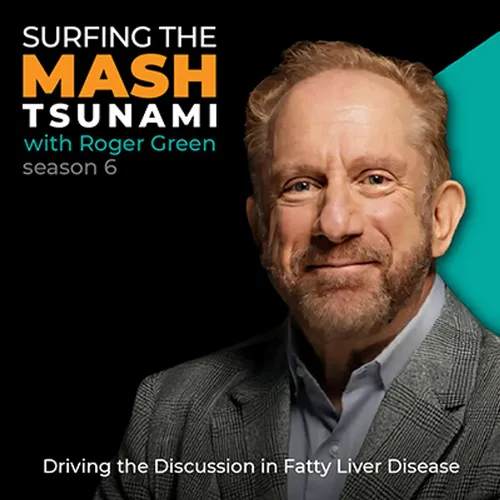S5 - E2.3 - Where Do MASLD Patients And Advocates Fit In MASH Drug Access Decisions?
- Author
- HEP Dynamics LLC
- Published
- Sat 17 Feb 2024
- Episode Link
- None
Leading MASLD patient advocates Jeff McIntyre (Global Liver Institute), Milan Mishkovikj (European Liver Patients Association), Tony Villiotti (NASH kNOWledge) and Wayne Eskridge (Fatty Liver Foundation) join Louise Campbell and Roger Green to explore the roles advocacy groups might play in supporting patient access through drug information, education and advocacy processes.
The conversation starts with Roger. He takes note of advocates' sense that they are held outside the access process and asks whether and how that might change. Wayne suggests the question itself is highly optimistic, noting that in a fragmented payer structure, the only advocate organization large enough to have impact is GLI, and he commends them for doing so. Louise comments that while patients take the medications, "they are not the market. The market is the payer." In the UK, the market is either NICE or the private insurers, and these payers look for cost effectiveness. She also notes that MASH drugs might find themselves competing against diet and exercise, incretin agonists and other interventions yet to come that are not steatosis-specific. Prescribers make decisions within the context of guidelines (what Louise describes as "ticking boxes").
Tony notes that payers are the "final frontier" in terms of communicating with patients and assessing their needs. Jeff notes that this range of access-related issues are what he described earlier as the "second half" that starts subsequent to drug approval. He notes that in the US, this relates not only to private insurers but also CMS and the VA system, since most of the early MASH patients will be older than 65. He views patient activism and advocacy as the vehicles patients can use to affect the value process and achieve wider, simpler availability to medications. Milan looks at these same questions from a European perspective, and notes that government payers care about total cost of disease. For MASH, this probably involves liver cancer more than any other disease sequel.
As the conversation ends, Roger comments that in his past work as a pricing consultant, he always advised clients that education and communication were keys to long-term success. In his vision, a patient who does not see the value in medication will not take it. This will lead the prescriber to believe it doesn't work well and, over time, not to prescribe it.
